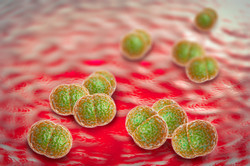New vaccines under preclinical development
Bacteria that cause invasive Salmonella disease and those that cause meningococcal meningitis are a major cause of mortality and suffering in the developing world. There is an urgent need for efficient vaccines against Salmonella and Neisseria species. The EU-funded VADER(opens in new window) (Vaccine design and immune responses) study brings together industrial and academic expertise in the fields of vaccinology, immunology and microbiology. The scope is to advance global health by translating academic advances into vaccine development while transferring research questions from the industry to academia. A fundamental aspect of VADER is the training and exchange of scientists between academia and industry to demonstrate that such mobility can improve patient care. VADER scientists have made significant scientific progress in terms of vaccine development. They generated novel polysaccharide-conjugate vaccines against Salmonella typhi linked to diphtheria and tetanus toxoid-carrier proteins. This novel chemistry has exhibited immunogenicity in animal models and current activities focus on the characterisation of the immune responses. In addition, researchers are exploring novel bacterial proteins as candidate vaccine antigens for non-typhoid Salmonella. Efforts towards meningococcal vaccines have focused on the manipulation of African bacterial isolates to express factor H binding protein and enhance immunogenicity. Evaluation of these modified attenuated species in terms of immunogenicity will determine their future clinical translation potential. The VADER project combines the industry expertise of vaccine design and engineering with the academic understanding of the immune mechanisms of vaccine protection. This cooperation will result in the successful development of new vaccines against Salmonella and meningococcal meningitis that could help save thousands of lives at risk.







